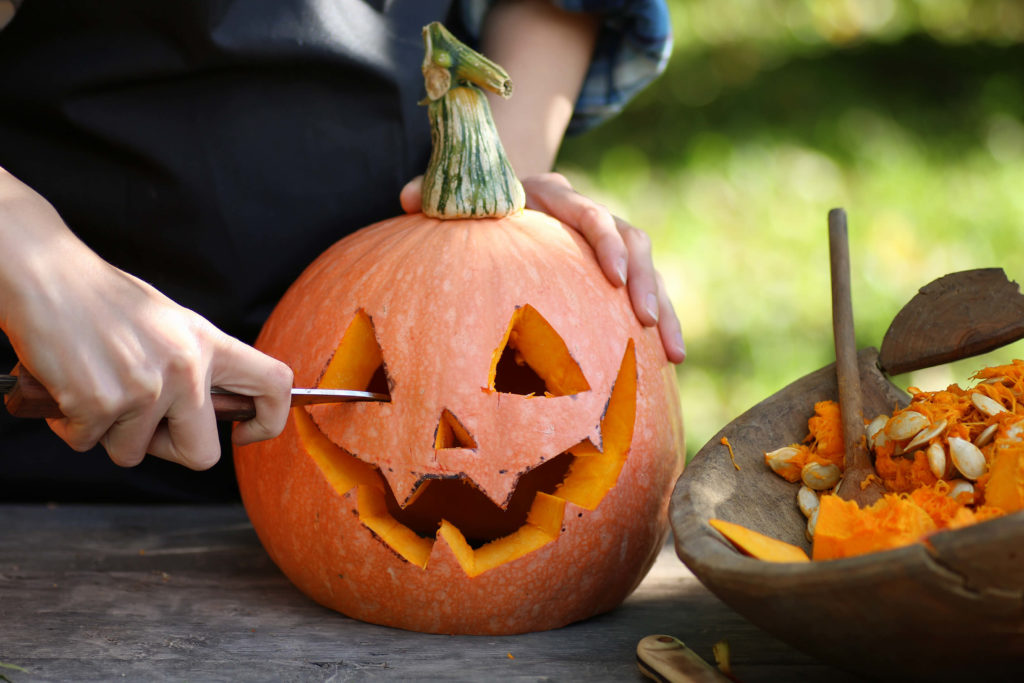
Halloween Traditions Around the World
We’ve all seen the American version of Halloween portrayed in popular culture, television and film. However, trick-or-treating and carving pumpkins doesn’t necessarily take place all across the world.
Therefore, we share an insight into just some of the ways in which other communities celebrate Halloween traditions around the world.
Halloween traditions in Italy
Alongside the imported Halloween celebrations, some communities in Italy celebrate ‘Tutti i Santi’, popularly known as ‘Ognissanti’ on 1st November each year. As a religious holiday, during Ognissanti or ‘All Saint’s Day’, all saints and martyrs are honoured for their service to the church.
Many other communities around the world celebrate All Saint’s Day, including in Poland, France and Spain. The tradition dates back to the Celtic festival of Samhain, with All Saint’s Day incorporating some of the ancient festival’s traditions.
As an important Italian national holiday, businesses close to allow families to attend services across the country. Festivities don’t last just one day in Italy, with ‘Tutti i Morti’ or All Souls’ Day celebrated on 2nd November. All Souls’ Day offers the chance to reflect on lost loved ones and visit cemeteries to clean up their graves.

Italian Halloween vocabulary
Trick or Treat
dolcetto o scherzetto!
Monster
mostro
Pumpkin
zucca
Halloween traditions in Mexico
In Mexico, ‘Día de los Muertos’ or ‘The Day of the Dead’ represents a popular tradition still widely celebrated today. Whilst called Day of the Dead, the celebrations actually take place over two days, both the 1st and 2nd November. Día de los Muertos is a celebration of the lives of the deceased. The day sees family members and friends take part in ceremonial events and visit cemeteries to decorate graves of those lost.
Moreover, the tradition is symbolised by colourfully decorated Calacas (Skeletons) and Calaveras (Skulls). The Calacas and Calaveras can be seen lining streets and as part of costumes used by performers.
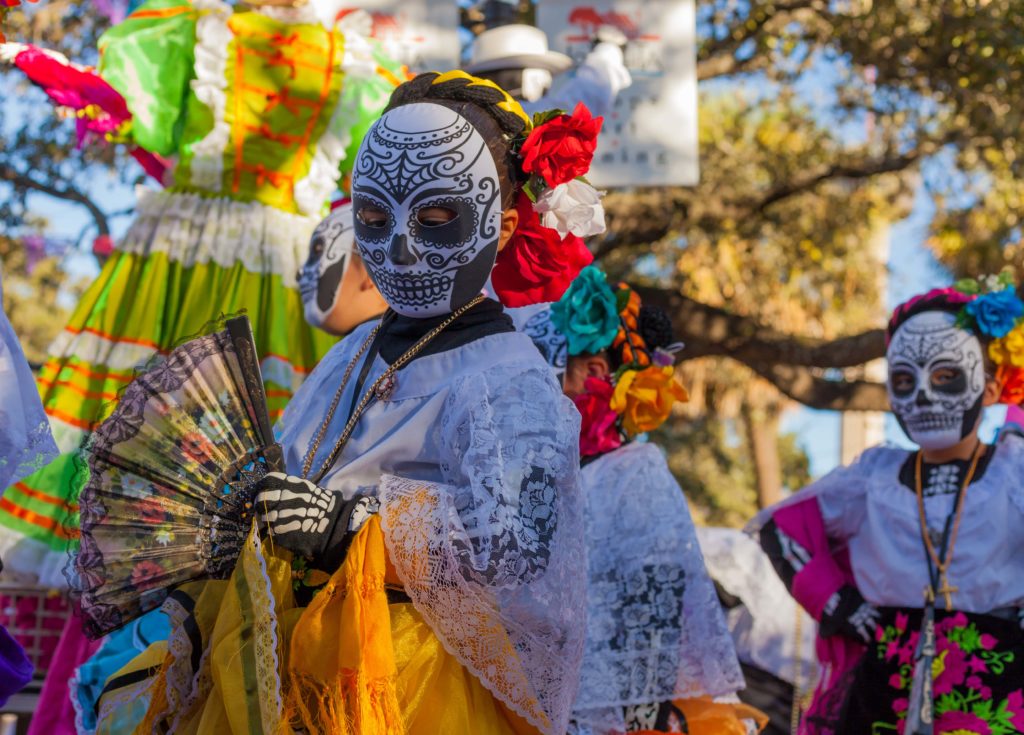
Spanish Halloween vocabulary
Trick or Treat
truco o trato
Witch
bruja
Haunted house
casa embrujada
Halloween traditions in Japan
A notable mention for a Halloween tradition in Japan, are events like the Kawaski Halloween Parade, held on the last Sunday of October. The event draws in around 120,000 visitors each year, with over 3000 parade participants.
Participants compete for the chance to win the ¥500,000 (Just over £3100) prize for the best costume.
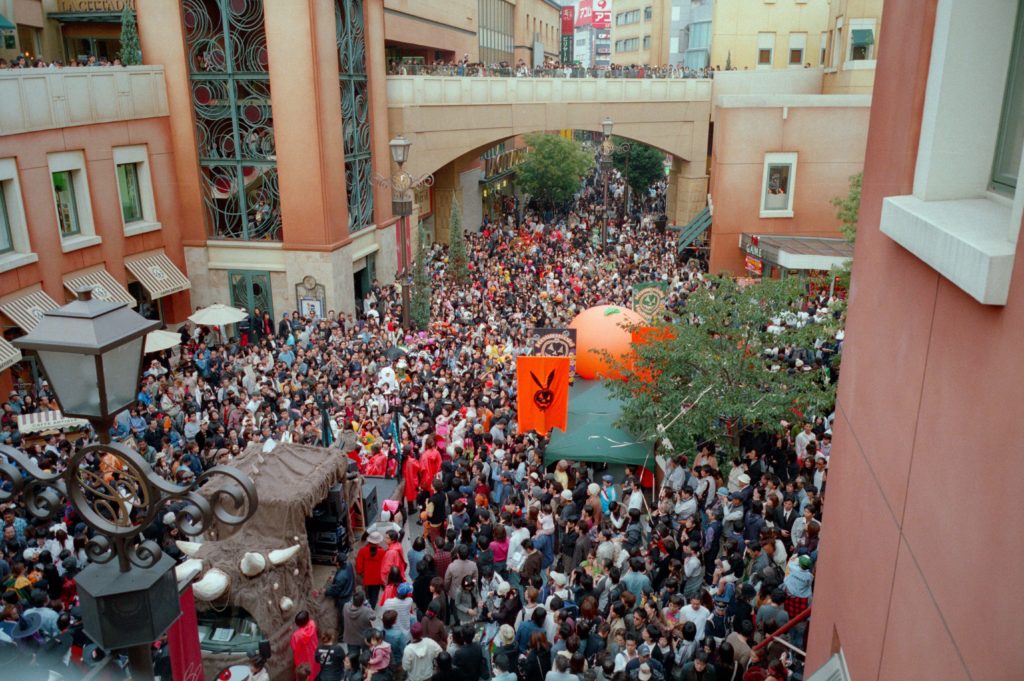
Japanese Halloween vocabulary
Halloween
ハロウィン / Harowin
Bat
こうもり / Koumori
Monster
おばけ / Obake
Halloween traditions in USA
As a result of its popularity, Halloween is a big deal in America. Especially for retailers, with an expected $10.1 billion spend for Halloween 2021. (Source: Statista)
Celebrated on October 31st, the American-style Halloween has been used as a blueprint for celebrations across the world. Neighbourhoods across America take part in annual yard decorating competitions to see who can make the spookiest haunted house. Not forgetting the annual trick-or-treat celebrations, seeing children dress up and take to the streets for buckets full of confectionery.
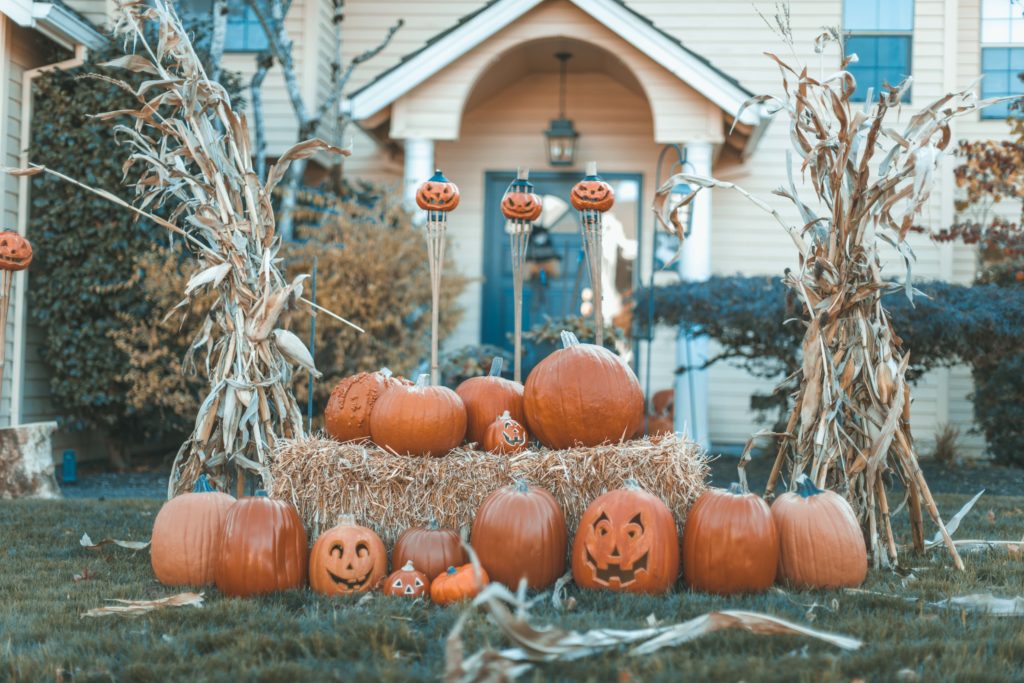
American Halloween facts
Halloween heritage
Halloween dates back to an old Celtic festival called Samhain. The pagan festival marked the end of summer, leading into the Celtic new year.
Top costume choices
The most popular American Halloween costumes include Spiderman (Children), Witch (Adults) and Pumpkin (Dogs)!
Here’s how to learn more about languages with Cactus:
Do you want to immerse yourself in other cultures and want to learn a language or improve your language skills? Cactus offers a variety of great group language courses. Including online and in the UK, across the world and private classes.
Learning a language has never been easier, and is a great way to start uncover a different culture. Read more about top language facts and more.
Are you looking to book a language course?
Please check our How to Book page for more information on the simple secure and easy online booking process.
For information on any of our classes, please call us on +44 (0) 1273 830 960 or contact us. Our multilingual team will be happy to answer any questions you may have.

 French
French German
German Italian
Italian Spanish
Spanish Arabic
Arabic Cantonese
Cantonese Czech
Czech Croatian
Croatian Danish
Danish Dutch
Dutch English
English Greek
Greek Hebrew
Hebrew Hindi
Hindi Japanese
Japanese Korean
Korean Norwegian
Norwegian Polish
Polish Portuguese
Portuguese Russian
Russian Swedish
Swedish Thai
Thai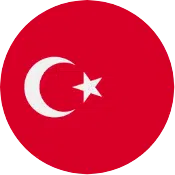 Turkish
Turkish Ukrainian
Ukrainian